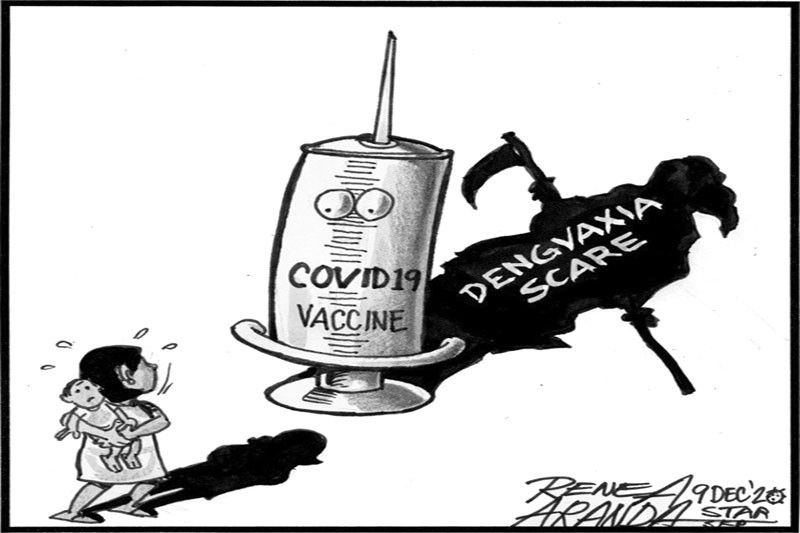EDITORIAL - Vaccine confidence

A British grandmother turning 91 next week became the world’s first recipient of a COVID-19 vaccine based on solid science. Margaret Keenan, who lost her husband to coronavirus disease 2019 earlier this year, was greeted with applause by health workers yesterday after she received the first shot of the vaccine developed by US pharmaceutical giant Pfizer and its German partner BioNTech.
Across the United Kingdom, around 50 state-run hospitals rolled out the Pfizer vaccine, in what the British dubbed as “V-Day” and “the beginning of the end” of the COVID pandemic. Keenan’s vaccine was administered by Philippine-born nurse May Parsons, who has been working for 24 years in the UK National Health Service. Because of her job, Parsons will be among the priority recipients of the COVID vaccine.
While global jubilation has greeted the rollout of the Pfizer vaccine, some quarters have also expressed concern over the possible side effects of something that was rolled out in record time. Vaccines can take a decade to develop, and certain viral afflictions still have no vaccines.
In the Philippines, vaccine skepticism was fueled by the controversy – not backed by science, according to critics – over Dengvaxia, the world’s first vaccine against dengue. The consequent hysteria derailed the government’s long-running, tested immunization programs for several childhood illnesses including measles, whooping cough and polio.
Even with the illnesses and deaths attributed to coronavirus disease 2019, vaccine skepticism persists. This is one of the hurdles that the government will have to overcome once the COVID vaccines, initially from British company AstraZeneca, begin arriving.
Health experts say from 60 to 70 percent of the national population must be inoculated to achieve herd immunity against a particular disease. While the government cannot compel people to get the COVID vaccine, that level of coverage must be achieved, so participation in the forthcoming mass vaccination must be properly explained to dispel fears and skepticism.
The risks posed by any new drug cannot be glossed over, but it must be emphasized that the benefits outweigh the risks to both public health and livelihoods. There’s a silver lining to being at the back of the line in the rollout of the various COVID vaccines in development worldwide: the efficacy and any side effects will be known. In the meantime, the public must be prepared to trust and accept the vaccine, which is the principal way out of this public health nightmare.
- Latest
- Trending





























